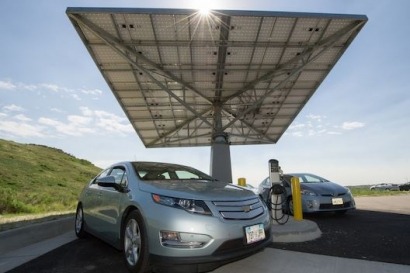
The latest in a steadily expanding series of costing studies from the International Renewable Energy Agency (IRENA) describes “an increasingly positive outlook” for the use of renewable energy in road transport from 2020 onward.
Road Transport: The Cost of Renewable Solutions (80 pages; English only), says the signs are encouraging, but continued research and development, funded by both public and private sources, remains essential. As are continued investments in recharging stations for electric cars and refuelling stations for biomethane vehicles.
“The signs are promising: a range of technology pathways are being explored, amid competition to prove the efficiency, reliability and ‘up-scalability’ of innovative new renewable transport fuels,” said IRENA’s Director-General, Adnan Z. Amin. “Electric vehicles, using renewable electricity, are also part of the intensifying competition, with mass-produced plug-in hybrids and pure electric vehicles appearing from a range of manufacturers, and costs will keep coming down with wider deployment.”
But policy changes, and short-sighted reactions to budgetary constraints, could undermine important achievements to ready the transport sector for a sustainable energy future just when the outlook appears so promising.
“Delaying, or rolling back, support and infrastructural investment for these renewable technologies at this stage would endanger the progress made towards aspirational targets for future years,” Mr Amin warned.
Renewable energy use is low in the transport sector, accounting for only 2.5% of energy consumption for all types of transport, and 3.3% for road transport.
Conventional biofuels have suffered due to price volatility of their feedstocks, which are closely tied to food crops. Advanced biofuels – with less linkage to food prices – are just starting to be produced at commercial scale and need further support for research, development and deployment to find the least cost-technologies.
“While the road just ahead is challenging, we can now see the beginnings of widely available, competitive renewable options for transport,” IRENA’s Director-General, Adnan Z. Amin.
The report entitled Road Transport: The Cost of Renewable Solutions was released at the United Nations Office at Geneva on the occasion of the annual meeting of the UN Economic and Social Council (ECOSOC).
For additional information:

